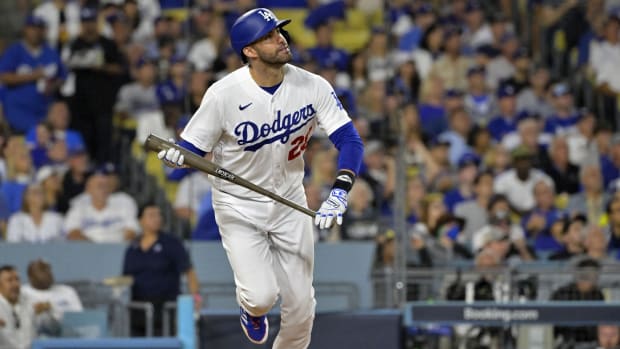What Defined MLB in the 2010s?
As the decade comes to a close, we're left with plenty of MLB storylines to unpack over the last 10 years. In a loaded, perhaps impossible exercise, we asked our baseball staff to outline what defined the 2010s to them. Here's to the 2020s.
Tom Verducci
This was the decade in which technology exploded: the Statcast era. (The tracking technology rolled out halfway through the decade.) Layered upon the statistical revolution of the previous decade, technology changed how baseball not only is played but also how it is taught. Knowledge replaced wisdom, which is why managers, coaches and players all got younger.
The result: a more efficient game when it comes to probabilities (i.e. more pitchers; more homers at the cost of more strikeouts and fewer singles; fewer teams taking a shot at the playoffs).
The cost: a slower, less attractive game that has seen attendance decline for a fourth straight year for the first time in half a century.
The most telling stat: when the decade began a ball was put in play every 3 minutes, 16 seconds. It ended with one ball in play every 4 minutes, 17 seconds–making customers wait 31 percent longer.
Stephanie Apstein
To me, the 2010s were the decade of tanking–and, in the last few years, of discovering the limitations of tanking. Four of the decade's champions won after tearing down and rebuilding: the Royals in '15, the Cubs in '16, the Astros in '17 and the Nationals in '19. But the next wave of remade contenders does not appear to be on the horizon, probably because that approach is now common. Stripping an organization down to the studs makes sense when you're the only one doing it. The problem, as teams are beginning to realize, is that there's only one No. 1 pick.
Emma Baccellieri
Home runs defined the decade. Not because there were more of them—actually, there weren't, with 51,931 in the 2010s versus 52,148 in the '00s—but because there was so much discussion about the fluctuations in homer totals and what they meant. Was it the ball? The launch-angle revolution? Just the natural result of trends in player development? Some new hitter behavior as an answer to new pitcher behavior? And, maybe most importantly, was all this here to stay? (It was, if not consistently, and while the eventual answer pointed to the ball, that just came with a whole new set of questions.) It tied together some of the most central themes of the decade—a focus on player development, Statcast's new data, frustration with Rob Manfred, etc.—and, anyway, what's more memorable than dingers?
Connor Grossman
The 2010s stand out as an era of dissatisfaction. MLB underwent an information revolution and consequently pitted fans against each other, the purists vs. the number crunchers. Then the physical baseball took center stage toward the end of the decade. It's juiced! Now it's deadened! Juiced again! As the NBA's popularity grew, we wondered why MLB wasn't marketing its stars the *right* way. Tanking entered the baseball lexicon, much to the dismay of the commissioner's office and baseball writing community. Talk of a labor stoppage began years in advance of the CBA's expiration.
Sure, the 2000s were marred by performance-enhancing drug controversies. But that feels like a speck compared to the avalanche of issues and negative discourse that flooded baseball this decade, no thanks to the rise of social media that only proliferated the negativity.
Way to go, Twitter.
Matt Martell
The 2010s will be remembered as the decade of analytics. It's when using data to make decisions became mainstream. Every decade has had superstars, dominant teams and all-time great World Series games. The big difference now is that organizations are using analytics to identify these superstars, build these dominant teams and manage these World Series games.
Michael Shapiro
The first decade of the 2000s saw an explosion of information, with Billy Beane and the A's turning baseball on its ear with a new wave of analytics. The 2010s should be remembered in a similar vein, with the Astros standing as the decade's defining team. Houston ushered the tanking era into baseball, and its embrace of technological advances has created an information war throughout the game. Launch angle and spin rate are here to stay, in large part due to Jeff Luhnow and A.J. Hinch. Baseball is smarter than ever, for better worse. We'll live with the consequences for decades to come.



































